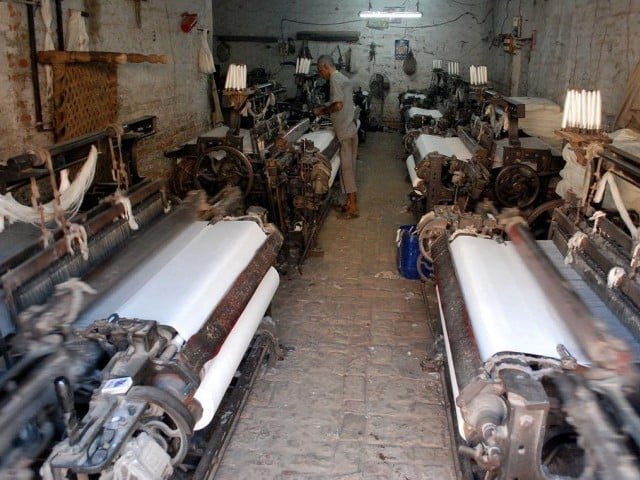Labour rights: Charles Dickens’ dark tales come alive in Pakistan’s factories
The story of how a man’s life changed when he lost his fingers in an accident at his workplace

The story of how a man’s life changed when he lost his fingers in an accident at his workplace. PHOTO: INP
Today, workers in a factory can end up losing their fingers, limbs, hands and even their lives, and yet their owners can get away from all this without having to pay a single penny to the helpless workers.
Tanveer Ahmed is among such workers who depended on the factory he worked for. Fate took a drastic turn for him when nine years ago, he lost four of his fingers in an accident while working at a factory near Siemens Chowrangi. The factory manufactured plastic tubs and coolers.
New survey highlights gaps in implementation of labour laws
"I lost my hand and with it, my ability to work. But I did not get any money or compensation for it," said Ahmed, while trying to hide what had been once his left hand, with the sleeve of his kameez. A long thin thumb, the only finger on his left hand, sticks out from his sleeve.
Ahmed brought his complaint to the Human Rights Commission of Pakistan, where the field officer Abdul Hai wrote letters to Ahmed's factory owners and made phone calls, but did not get any response. "Owners [of the factories] do not give appointment letters to workers and that complicates the situation," Hai said, adding that when workers get injured in accidents at their workplace, they usually do not have anything to prove that they worked there. However in Ahmed's case, he did have three attendance cards which he immediately showed the field officer to prove he worked for the factory.
Narrating his story, Ahmed said he started working in 2006 at the age of 14 to support his family. But only three months later, he lost his fingers when his left hand got caught in the dye and mould machine while he was pulling out parts which had gotten stuck. "My hand was stuck in the machine for an hour," Ahmed said, adding that he was then taken to a clinic where doctors amputated it.
To keep earning, Ahmed, who is the eldest of his siblings, kept working in the same factory for years, since the owners never gave him any compensation. "I would make knots with my mouth and did the packaging with one hand," he said.
But Ahmed's problems kept increasing and he had to quit the job as his right hand was not able to carry weight. Since then he has been trying to look for other jobs, but no one wants to employ him because of his disability.

Under the Workmen's Compensation Act, 1923, a law from the British-era, workers in factories are to be compensated by the owners for injuries caused by accidents.
Labour practitioner Syed Ashraf Hussain Rizvi explained that Rs0.2 million was set by the government as compensation money in 1991 and the minimum wage was Rs1,500 at that time. Referring to Ahmed's case, Rizvi said that Ahmed is to be compensated 50 per cent, which means he should receive Rs0.1 million from his owners, according to the law. "Years have gone by and the minimum wage has increased, but the compensation rate is still the same," Rizvi said, adding that it should be at least Rs2 million. Not only this, Rizvi believes social security and other benefits should also be provided to such workers who have suffered injuries in factories.
On an average, trade unionist Nasir Mansoor receives two cases every month pertaining to workplace injuries. "When a worker gets injured, the owners take him to Civil hospital, give him Rs1,000 or Rs2,000 and leave him there," he said, talking about the kind of cases he get. According to Mansoor, the highest number of cases takes place in ship-breaking industries, garment, and textile factories.
Harsher penalties under deliberation for child labour
Another trade unionist, Rafiq Baloch, who deals with such cases, mentioned the case of Barkat Ali, who lost his fingers in a textile factory in 2012. Even though they won the case in June this year and court ordered the factory to compensate, the orders are yet to be implemented by the factory.
Published in The Express Tribune, November 23rd, 2015.



















COMMENTS
Comments are moderated and generally will be posted if they are on-topic and not abusive.
For more information, please see our Comments FAQ